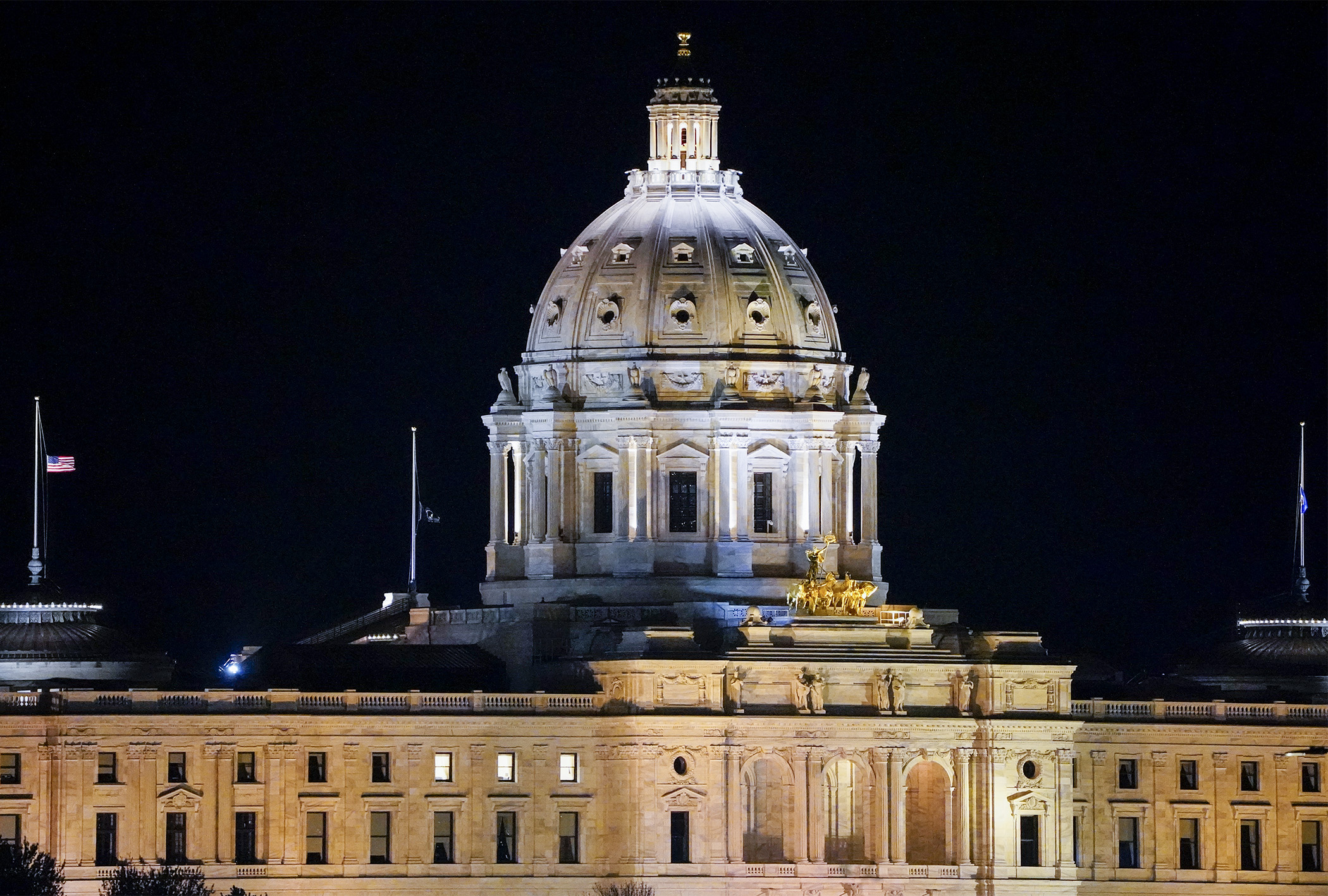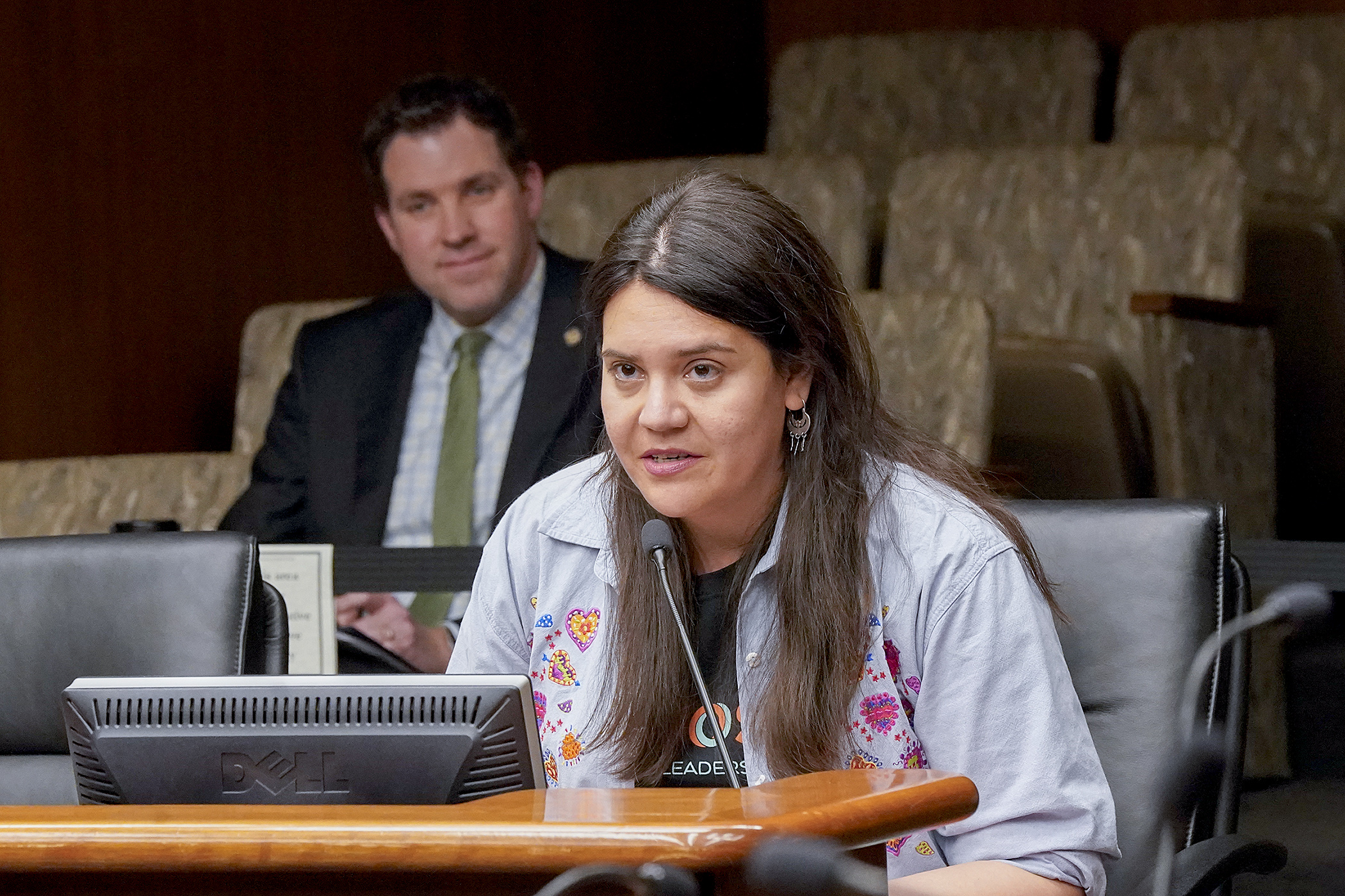Voters may weigh in on potential full-time Legislature, proposed redistricting commission

A trio of topics in one ballot question this November could allow the Legislature to constantly meet.
Per the state constitution, the Legislature is not permitted to meet in regular session “after the first Monday following the third Saturday in May of any year.” Additionally, the number of legislative days in a biennium are capped at 120.
Both would be nixed via a bill that could in essence create a full-time Legislature, even though the idea of meeting year-round is not something current legislative leaders have said they want.
Sponsored by House Majority Leader Jamie Long (DFL-Mpls), HF4598, as amended, was approved on a split-voice vote Wednesday evening by the House Elections Finance and Policy Committee. All 34 bill co-sponsors are DFLers, including seven of eight majority party members on the committee.
“This is, at its core, a balance of powers issue with the executive (branch),” Long said. “Given our limitations on calling ourselves into session we have seen abuses by executives of both parties. … Unallotment has been used six times since 1980 to unilaterally reject legislative appropriations, including three times by Gov. Pawlenty. Gov. Dayton line-item vetoed the legislative pay, holding it hostage to an unrelated policy demand which prompted a constitutional crisis. And, if we want to go more recent in the COVID outbreak, our emergency powers laws was based on a lack of trust that the governor would call us back into session which resulted in the most special sessions in state history.
“The Legislature is the closest branch to the people and our voters deserve fair representation in the legislative process. We should be on equal footing with the governor for when we can meet.”
Rep. Ben Davis (R-Merrifield) sees it differently. “This language opens the door for us to become a full-time Legislature. Folks that I serve, they want me in my district.”
Like Davis, Rep. Kristi Pursell (DFL-Northfield) is serving her first term. “It’s 2024 and the business seems to have gotten, in my short time here, quite busy and to make sure we do our work in that amount of time has seemed challenging thus far.”
A third first-year member disagrees. “I don’t think this is how government was intended. We do not need to be here as much as we are,” said Rep. Pam Altendorf (R-Red Wing).
The bill would also establish a one-year prohibition on legislators leaving office from becoming a lobbyist — which is currently in House Rules but unenforceable — and create an independent commission to redraw districts after the once-a-decade census is conducted.
All would be put forth to voters in November 2024 via a constitutional amendment that would ask: “Shall the Minnesota Constitution be amended to require an independent redistricting commission to adopt boundaries for congressional and legislative districts following a decennial census; to prohibit members of the legislature from serving as lobbyists while in office and for a period of one year after leaving office; and to amend requirements related to the timing and process for convening regular legislative sessions?”
Six amendments offered by Republicans were rejected, including ones to maintain current legislative time limits and ask each question individually.
 Sara Lopez, policy director at Unidos Minnesota, testifies before the House Elections Finance and Policy Committee March 13 in support of HF4598. Majority Leader Jamie Long sponsors the bill. (Photo by Michele Jokinen)
Sara Lopez, policy director at Unidos Minnesota, testifies before the House Elections Finance and Policy Committee March 13 in support of HF4598. Majority Leader Jamie Long sponsors the bill. (Photo by Michele Jokinen)Davis noted he could support one of the provisions, but because he doesn’t care for the other two, he’d vote against the entire package.
It’s “unfair” to voters to put multiple topics in one amendment, said Rep. Duane Quam (R-Byron). “Let’s have clean, clear, crisp amendments. Don’t muddy things.”
Countered Long: “We have a tradition in Minnesota of constitutional amendments that include multiple related subjects. The Legacy Amendment is one where we’ve done funding for arts and culture in one amendment. These subjects are all good government topics so it makes sense to be on the ballot together.”
Getting this proposed amendment on the ballot would not require action by Gov. Tim Walz because, per the state constitution, if approved by the House and Senate the question will be before voters.
House Minority Leader Lisa Demuth (R-Cold Spring) said in a Monday statement this change aims to bring Washington D.C. politics to the Land of 10,000 Lakes rather than having the traditional citizen-based Legislature.
“This bill would turn Minnesota into a legislature for professional politicians. We need legislators who understand the challenges of being a small business owner, a teacher, a farmer, and all of the other professions and experiences that each of us bring to this work.”
Under current law, a legislative day is counted when either the House or Senate meets in session; however, that will change next year when “paper-pushing” sessions will not count.
Per a provision in the 2023 state government law, beginning Jan. 13, 2025, a legislative day will be defined as “a day when either house of the legislature gives any bill a third reading, adopts a rule of procedure or organization, elects a university regent, confirms a gubernatorial appointment, or votes to override a gubernatorial veto.”
Every 10 years legislative lines are redrawn following the census to reflect population shifts and ensure equal numbers of constituents per district. The Legislature is charged to do this, but for many decades, state courts have ultimately drawn them.
This has served us well, Long said, but there is no guarantee it’ll always be that way. Additionally, there is no way to know which party will be in charge when lines are next redrawn in 2031. “No matter who is in charge our maps should be fair.”
Per the bill, a 15-member independent commission — five members representing the DFL, five representing Republicans and five who do not affiliate with either — would create the boundaries.
At a minimum, districts must provide, in part: “the equal opportunity of racial, ethnic, and language minorities to participate in the political process and to elect candidates of their choice, whether alone or in coalition with others.”
Restrictions would be put in place for when a federally recognized American Indian reservation can be divided between districts, and districts would need to minimize dividing communities of interest, which per the bill, “may include a racial, ethnic, or linguistic group or any group with shared experiences or concerns, including but not limited to geographic, regional, social, cultural, historic, socioeconomic, occupational, trade, or transportation interests.”
Related Articles
Search Session Daily
Advanced Search OptionsPriority Dailies
Speaker Emerita Melissa Hortman, husband killed in attack
By HPIS Staff House Speaker Emerita Melissa Hortman (DFL-Brooklyn Park) and her husband, Mark, were fatally shot in their home early Saturday morning.
Gov. Tim Walz announced the news dur...
House Speaker Emerita Melissa Hortman (DFL-Brooklyn Park) and her husband, Mark, were fatally shot in their home early Saturday morning.
Gov. Tim Walz announced the news dur...
Lawmakers deliver budget bills to governor's desk in one-day special session
By Mike Cook About that talk of needing all 21 hours left in a legislative day to complete a special session?
House members were more than up to the challenge Monday. Beginning at 10 a.m...
About that talk of needing all 21 hours left in a legislative day to complete a special session?
House members were more than up to the challenge Monday. Beginning at 10 a.m...